Question And Answer
Publications
Articles, publications, books, tools and multimedia features from the U.S. Institute of Peace provide the latest news, analysis, research findings, practitioner guides and reports, all related to the conflict zones and issues that are at the center of the Institute’s work to prevent and reduce violent conflict.
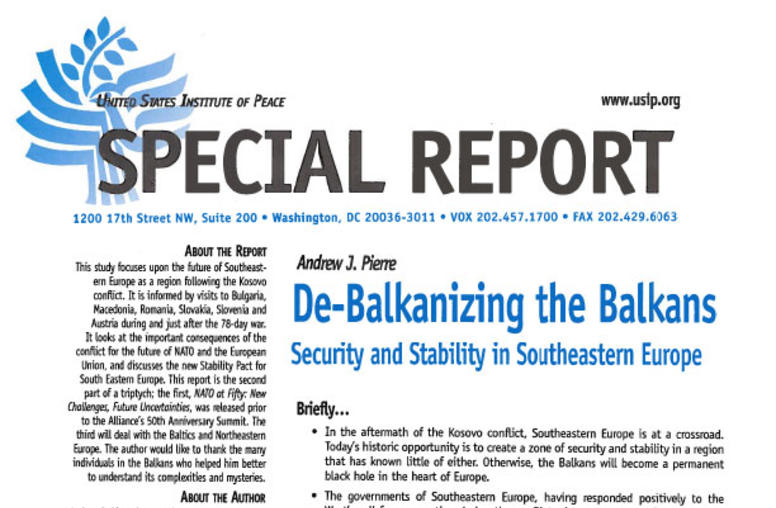
De-Balkanizing the Balkans: Security and Stability in Southeastern Europe
Summary In the aftermath of the Kosovo conflict, Southeastern Europe is at a crossroad. Today's historic opportunity is to create a zone of security and stability in a region that has known little of either. Otherwise, the Balkans will become a permanent black hole in the heart of Europe. The governments of Southeastern Europe, having responded positively to the West's call for cooperation during the conflict--in most cases against their own public opinion--and having incurred subst...
Truth Commission: Nigeria
Truth Commission: Human Rights Violations Investigation Commission Duration: 1999 - 2002 Charter: Instrument No. 8 of 1999 Commissioners: 8 Report: Public report; released unofficially
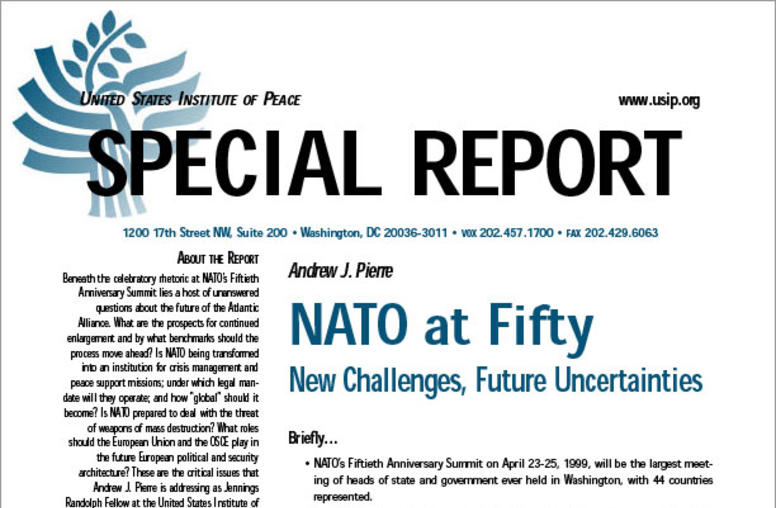
NATO at Fifty: New Challenges, Future Uncertainties
Summary NATO's Fiftieth Anniversary Summit on April 23-25, 1999, will be the largest meeting of heads of state and government ever held in Washington, with 44 countries represented. Despite promises of an "open door" to NATO membership and the expectation that a second tranche would be announced, none of the current nine "aspirants" are slated to be invited, nor will a date for the second round be announced.
Truth Commission: Rwanda 99
Truth Commission: National Unity and Reconciliation Commission Duration: 1999 – today (permanent since 2002) Charter: Law No. 03/99 Commissioners: 12 Report: Various public reports
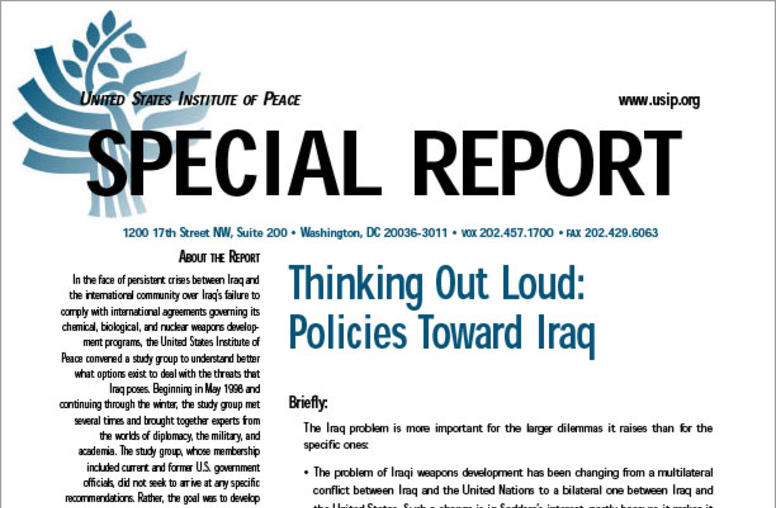
Thinking Out Loud: Policies Toward Iraq
In the face of persistent crises between Iraq and the international community over Iraq's failure to comply with international agreements governing its chemical, biological, and nuclear weapons development programs, the United States Institute of Peace convened a study group to understand better what options exist to deal with the threats that Iraq poses.
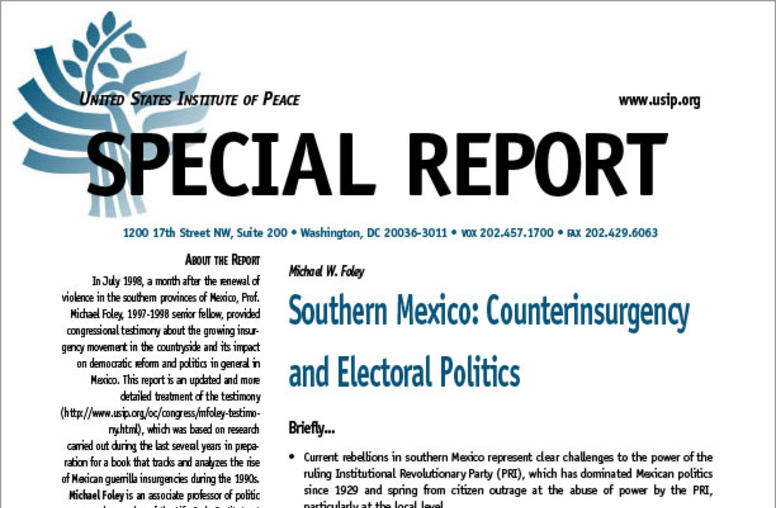
Southern Mexico: Counterinsurgency and Electoral Politics
Summary... Current rebellions in southern Mexico represent clear challenges to the power of the ruling Institutional Revolutionary Party (PRI), which has dominated Mexican politics since 1929 and spring from citizen outrage at the abuse of power by the PRI, particularly at the local level. The current government's strategy has combined conciliatory gestures with military counterinsurgency operations and dialogue in attempts to buy support through generous public works projects, with l...
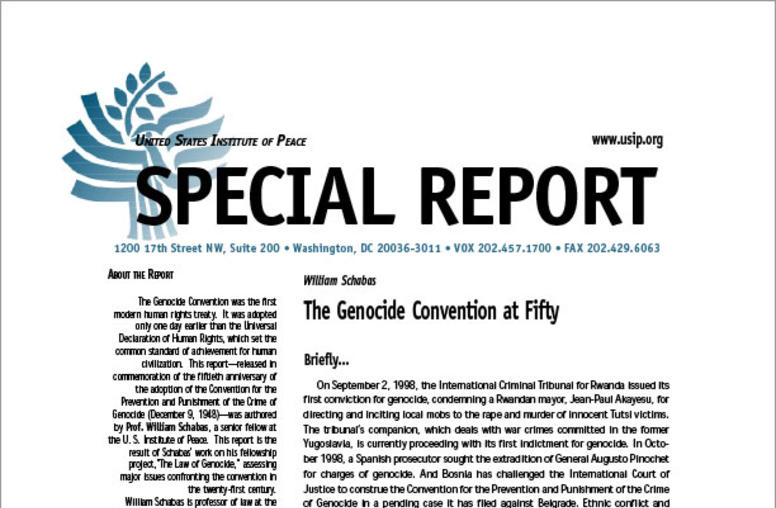
The Genocide Convention at Fifty
Summary On September 2, 1998, the International Criminal Tribunal for Rwanda issued its first conviction for genocide, condemning a Rwandan mayor, Jean-Paul Akayesu, for directing and inciting local mobs to the rape and murder of innocent Tutsi victims. The tribunal's companion, which deals with war crimes committed in the former Yugoslavia, is currently proceeding with its first indictment for genocide. In October 1998, a Spanish prosecutor sought the extradition of General Augusto Pinoch...
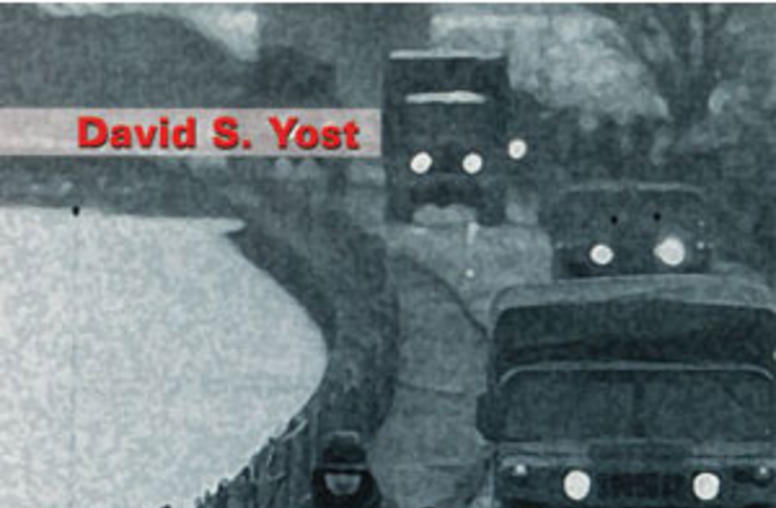
NATO Transformed
The North Atlantic Treaty Organization, perhaps more than any other Cold War institution, embodied the West’s determination to deter potential Soviet aggression in Europe. But nearly a decade after the collapse of the Soviet empire, the Atlantic Alliance is engaged in cooperative security endeavors with former adversaries throughout Europe, including peacekeeping operations in Bosnia.
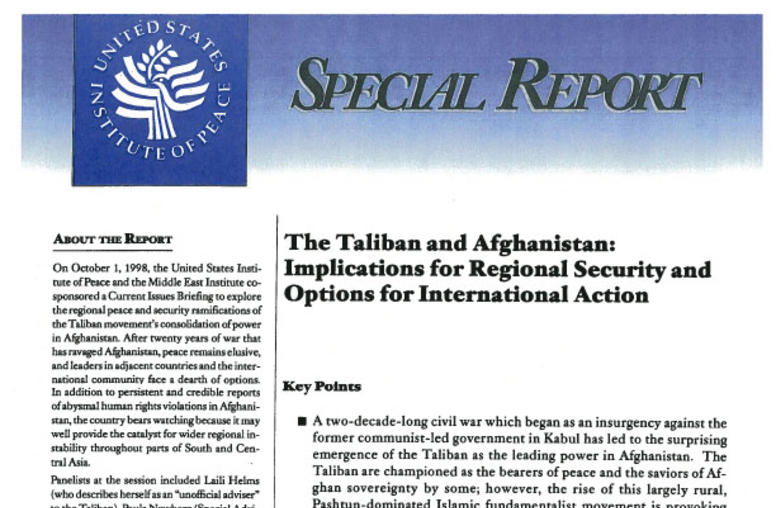
The Taliban and Afghanistan: Implications for Regional Security and Options for International Action
The United States Institute of Peace and the Middle East Institute cosponsored a Current Issues Briefing to explore the regional and security ramifications of the Taliban movement's consolidation of power in Afghanistan. After twenty years of war that has ravaged Afghanistan, peace remains elusive, and leaders in adjacent countries and the international community face a dearth of options. In addition to persistent and credible reports of abysmal human rights violations in Afghanistan, the cou...
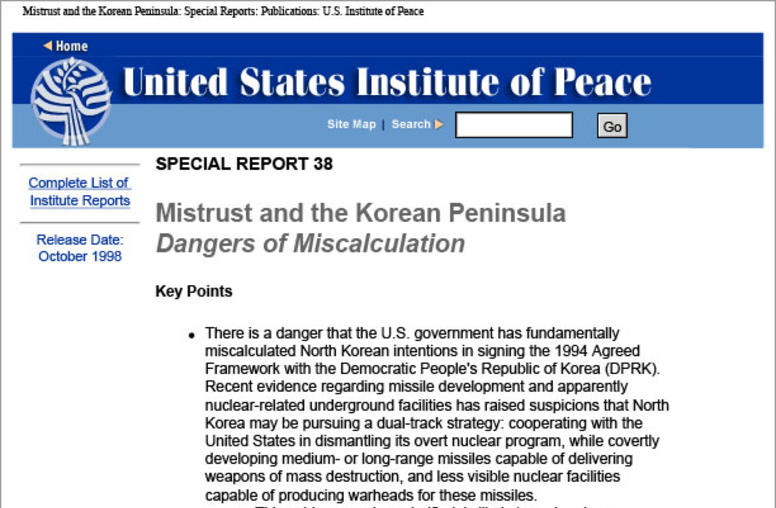
Mistrust and the Korean Peninsula: Dangers of Miscalculation
An unwillingness to challenge North Korea now with a more concerted diplomatic and deterrence policy, lest it precipitate a repeat of the 1994 crisis, risks being confronted later by a qualitatively different North Korean military threat. There is a significant danger of miscalculation: while previous North Korean induced crises have strengthened Pyongyang's negotiating leverage in general and perhaps the Korean People's Army's strong hold on power in particular, there is a serious risk that ...